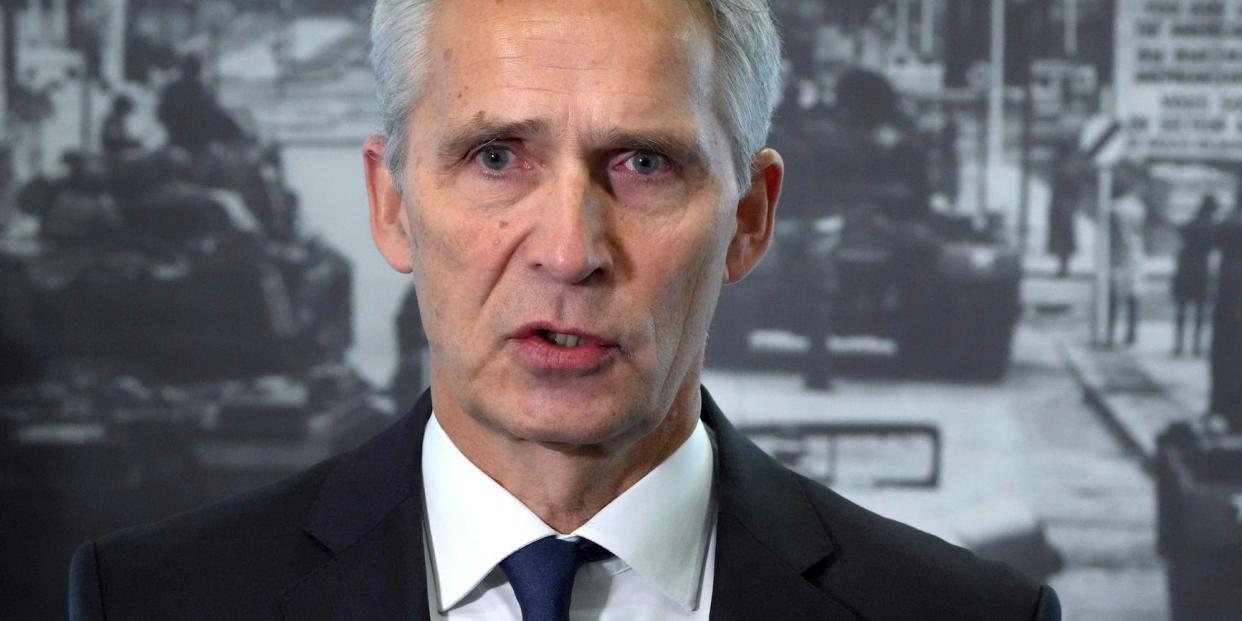Russia has destroyed all efforts to forge better ties since the Cold War by invading Ukraine, NATO chief says

- Oops!Something went wrong.Please try again later.
NATO's chief said Ukrainian invasion destroyed decades of work to improve relations post Cold War.
He said "NATO strived for decades to develop a better, more constructive relationship with Russia."
But Russia "walked away from all this" and trust won't come back even with a war end.
NATO's chief said decades of work to improve relations with Russia since the end of the Cold War have been destroyed by the country's invasion of Ukraine.
NATO Secretary General Jens Stoltenberg told CNBC on Monday that the Western military alliance "strived for decades to develop a better, more constructive relationship with Russia."
"After the end of the Cold War we established institutions [like the] NATO-Russia Council, when I was prime minister of Norway I remember that President Putin attended NATO summits ... so this was a different time when we worked for a better relationship. Russia has walked away from all of this," he said.
The Cold War ended in 1991, and the NATO-Russia Council was founded in 2002, with the aim of working as partners in areas of common interest.
Stoltenberg also said the invasion of Ukraine had destroyed relations to the extent that they could not be healed even with an end to the conflict.
"Even if the fighting ends, we will not return to some kind of normal, friendly, relationship with Russia. Trust has been destroyed," he said.
Russia's invasion has been widely condemned by the West and by many other countries around the world, leaving it the most isolated it has been in decades.
The war has also ramped up military and political tensions between Russia and NATO specifically.
Russia's President Vladimir Putin partly justified his invasion, which he launched in February, by saying that he was worried NATO was expanding eastwards, including into Ukraine.
Ironically, the invasion has only led to NATO's likely expansion closer to Russia: Sweden and Russia neighbor Finland applied to join the alliance in light of the invasion, and are now in the final stages of the process.
Ukraine also applied to join the alliance in September. While this could take years, NATO has repeatedly said that it supports Ukraine joining one day, when it meets the criteria.
Stoltenberg said last month that NATO will continue to support Ukraine for "as long as it takes".
Officials and leaders in eastern European NATO member countries told Insider earlier this year that they felt many Western nations had been too confident in the past in believing they could trust Russia and change it through diplomacy and dialogue.
Read the original article on Business Insider

